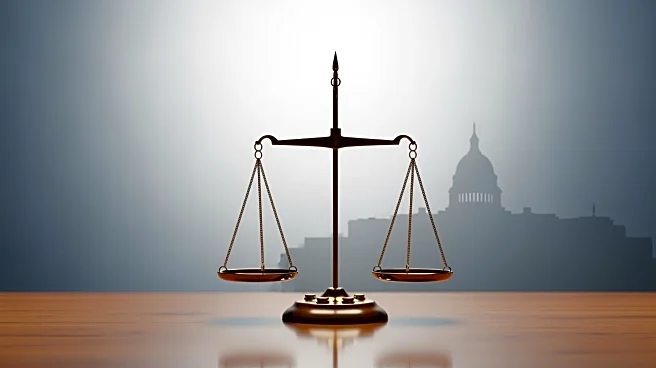What's Happening?
A legislative package aimed at ending the longest government shutdown in U.S. history is progressing through Congress. The Senate has taken steps to pass the bill, which includes funding to reopen the government and ensure backpay for furloughed federal
workers. The package, however, does not address expiring health care subsidies, a key issue for Democrats. President Trump has expressed optimism about the shutdown ending soon. The Senate's procedural vote saw eight Democrats join Republicans, although Senate Democratic Leader Chuck Schumer opposed the bill due to the lack of resolution on health care funds. The legislation is expected to move to the House, where lawmakers are preparing to return to Washington for further action.
Why It's Important?
The government shutdown has caused significant disruption to federal programs and services, affecting millions of Americans. The proposed legislation aims to restore normal operations and provide financial relief to federal workers. However, the exclusion of health care subsidies from the package could lead to increased insurance premiums for many Americans, posing a challenge for Democrats who have been advocating for these funds. The resolution of the shutdown is crucial for stabilizing government functions and addressing the economic impact on affected sectors.
What's Next?
The Senate is expected to finalize the passage of the bill soon, with the House set to review and vote on the legislation. Political dynamics in the House, where Republicans hold a slim majority, could influence the bill's progress. Democrats may continue to push for health care subsidies, potentially delaying final approval. The outcome will determine the immediate future of federal operations and the financial security of federal workers.















